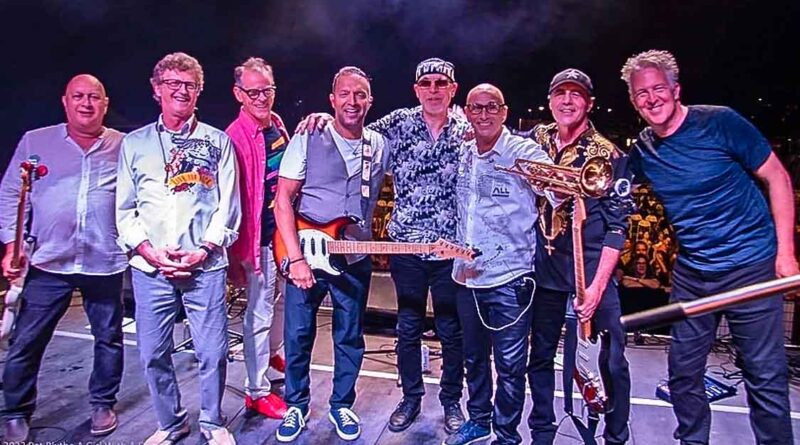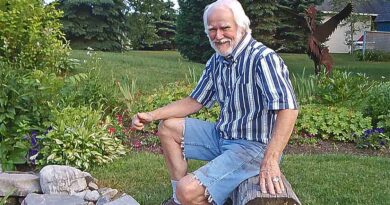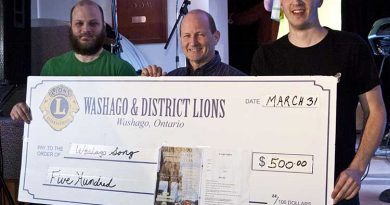Great Music In Transit To Orillia
By John Swartz
It started with a double album, a big risk for a new band. This was back in the days when even if your band was a big thing, convincing record execs it was a good idea was almost an exercise in futility.
Appropriately, the first tune on side one was called Introduction, and it is a tour de force unveiling of the capabilities and musicianship of each member of the band we know as Chicago.
People liked it. A lot of people liked it, but musicians loved it. Finally here was music with meat – and it was different from everything else on the radio and popular.
One of the things that made Chicago’s music different was the horn section. Horn sections weren’t new, but were often used to compliment main themes or provide hits or contrasting musical lines in support of a main theme. They were not the main focus, an integral part of the melody and theme, something which if absent left a hole in a song big enough for a Mack truck to drive through.
Imagine Make Me Smile without the horn section. How about Does Anybody Really Know What Time it Is? As great as the entire band is, the bass, drums, keyboards and guitar often supported the vocals and the horn section.
So if there is one member of the band Brass Transit to interview about their upcoming gig June 24 at the Opera House, its trombone player Doug Gibson. Who else but someone familiar with the notes on the page can explain why Chicago’s music captured everyone’s attention.
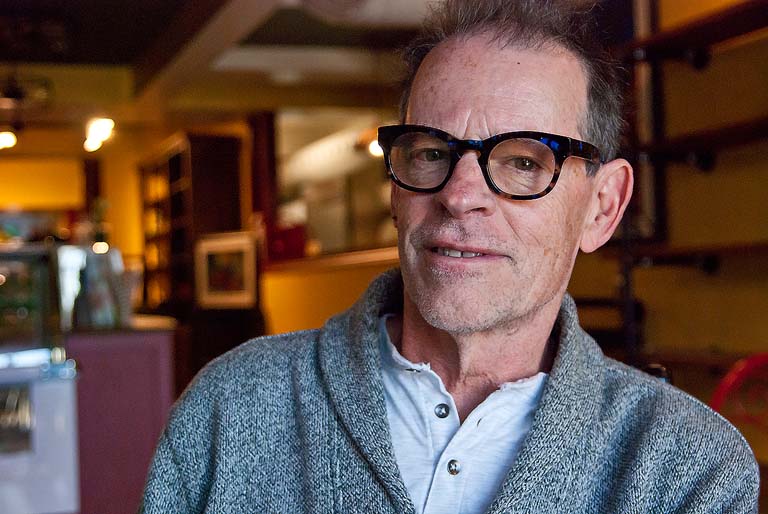
“It wasn’t a band with horns. The horns were right up in your face. The cool think about Chicago is, Jimmy Pankow, the trombone player is an absolute bull on the horn,” Gibson said.
“It’s not a traditional sounding horn section. The trombone is way out front. The trumpet is not out front, which usually it sits on top of the section, but in the traditional Chicago sound it doesn’t because he was not as strong a player. And the sax player was originally a legit clarinet player so he was way back in the mix.”
It’s almost like he’s deconstructing a barbershop quartet’s sound where the lead voice is a tenor, which gives barbershop music its distinctive sound.
This is the second time in a career of writing about music and musicians a trombone player has provided insight so obvious, once revealed it makes one wonder why it wasn’t noticed before. Yet here we are. Would it have worked with a trombone player other than James Pankow? Who knows? Leave it to a trombone player to recognize what others miss.
“I think he’s got the greatest commercial trombone sound ever. It just rips into you, nice, aggressive, great sound,” said Gibson.
It also helps Pankow wrote many of the tunes which were hits for Chicago. Give a listen to any of the songs he wrote, Make Me Smile, Colour My World, Just You ‘N’ Me, (I’ve Been) Searchin’ So Long, Old Days or Feelin’ Stronger Every Day and see if the trombone does jump out of the mix as a lead instrumental voice. Pankow also arranged the horn section parts for most of Chicago’s songs, the strong trombone quality can’t be unheard once you know.
Brass Transit has a book so thick they don’t play every Chicago tune they know in concerts; we could be there all night, though for some that is a feature not a bug. Gibson must have a favourite or two to play.
“That’s such a good question. They’ve got so many great tunes. Make Me Smile is always fun to play. Question 67 and 68, great horn solo in it, lots to play,” Gibson said. What? Beginnings doesn’t come to mind, with it’s early in the run order from Chicago’s first album and a killer trombone solo even a drummer takes note of?
“That’s a fun one too,” Gibson said. And fans react, often zeroing in on Gibson’s work with the band. “I was totally humbled by the fact people just adore and love it (Chicago’s music) so much; we always do meet and greets and they want to tell me how great I am. I go, “No, it’s a great songbook, we’re just recreating it. I didn’t write this stuff.”
Enough with the trombone adulation. When you see Brass Transit there will be other musicians on the stage, and Chicago wasn’t only known for having a great trombonist. People say Jimi Hendrix was the greatest guitarist ever; Jimi Hendrix thought it was Chicago’s Terry Kath.
“It’s hard to find a guy who plays like Kath. He was unique and so good. He was special,” Gibson said. Silvio Simone is Brass Transit’s answer to Terry Kath. He played on tour and/or recorded with many including Rik Emmett and Ronnie Hawkins. Need more? OK, he was on Leno’s and Letterman’s shows.
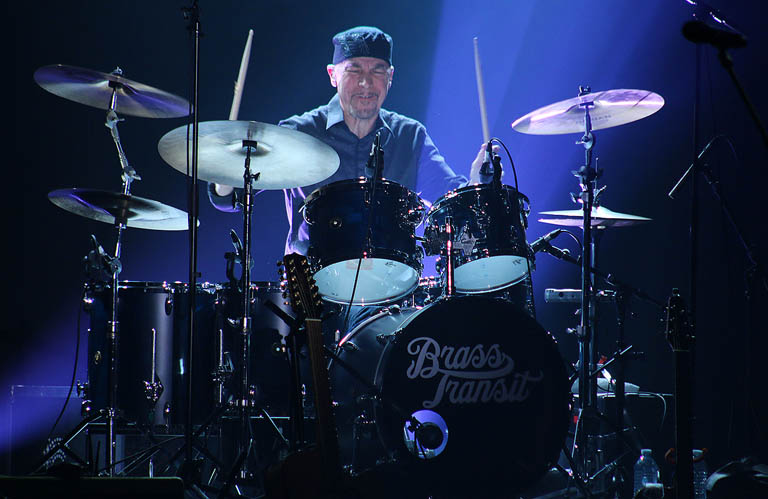
Ringo Starr may have sparked thousands of kids to want to play drums, but Danny Seraphine showed drummers you could play rudiments on a drum set and play jazz figures in rock music and people will like it. In fact, Seraphine was a perennial top ten pick in annual polls of great drummers long after he left Chicago.
Of course Pat Metheny said if your band’s drummer isn’t good, your band won’t be good. So, if you are going to form a band to play the challenging music of Chicago, you are going to need a really good drummer. Enter Paul De Long. Most people would know his name as Kim Mitchell’s long time drummer. The last couple years De Long has also became a member of Lighthouse – the band founded and lead by by the late, great, drummer Skip Prokop.
When you start to peruse the resumes of the other members of Brass Transit (singer Ian Jutsun, keyboardist Don Breithaupt, saxophonist Phil Poppa, bassit Jay Speziale and bandleader and trumpeter Tony Carlucci) you should be mildy impressed; each having stints with decades worth of making music with top name acts, recordings with same, awards nominations and wins for just about everything including Junos and Emmys This band playing the music the music of heavyweights are all heavyweights in their own right.
Oh, and there is one more thing to add luster, the original Brass Transit singer, Neil Donnel, is now a member of Chicago.
“I believe it was Tony and Don were sitting around thinking it would be fun to put together a band to play the music of Chicago, and we kind of thought, “yeah, we’ll book a few bar gigs or something for fun and it took off.”
“Tony and Don kind of hand-picked who they thought would be really great for it, taking into account the Chicago sound. We’d all worked jobbing gigs, sessions in town, we all knew each other,” said Gibson.
Invite the best and see what happens isn’t all of it. As Brass Transit became more in demand over their 15 year history, travelling to shows all over Canada and the United States, you kind of have to like each other too.
“The whole approach is, OK, we need someone who is going to be good for the gig stylistically and sound wise, but then when you start doing a lot of roadwork, you’ve got to get someone that’s easy to get along with. It’s tricky,”
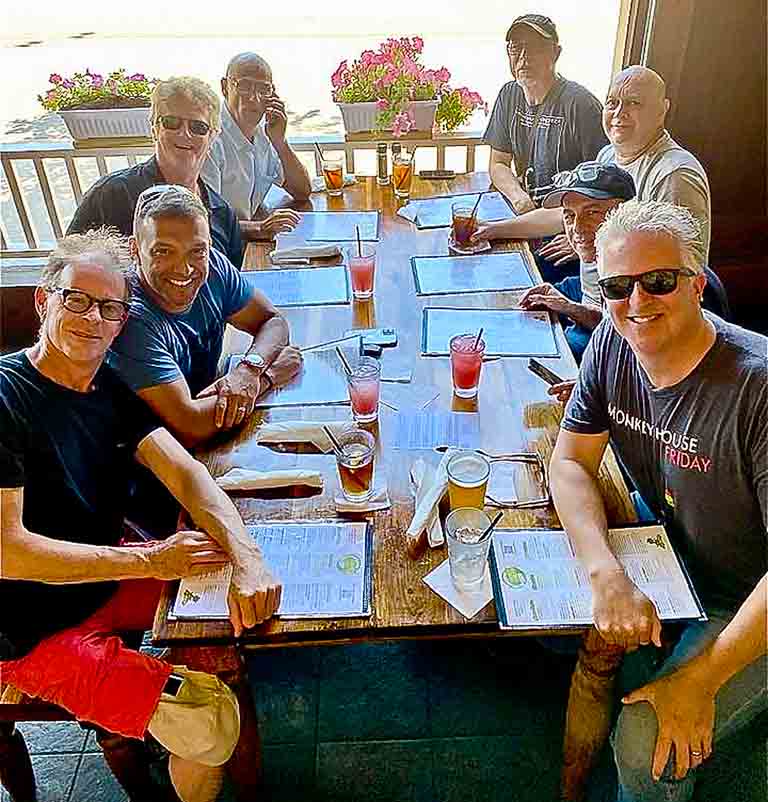
“The night before most gigs we all go out and dine together. All these people go, “Wow, you guys are really having fun up there, you really like each other.” I look at them and go, “Well of course we do.” If we didn’t, you might as well get into another business. If this isn’t fun, if this songbook isn’t fun to play, you’re doing something wrong,” said Gibson.
The band just got back from a series of gigs in Florida. Before that they had a few gigs in Calgary and Vancouver with some additional musical accompaniment – a symphony orchestra. But, as the story goes for Brass Transit, and for all performers, it’s been a year of getting back into things again following the pandemic.
“We had a great year (2019) and then COVID came along and just wiped it out. It’s picking up again,” said Gibson. It also meant some changes, not on stage, but getting a stage. Gibson has taken over booking shows for the band.
“I was tired of waiting around for other people to do it. I enjoy doing it, it’s nice to meet people,” Gibson said.
Continental travellers as they are, there must have been some gigs that stand out as memorable for Gibson.
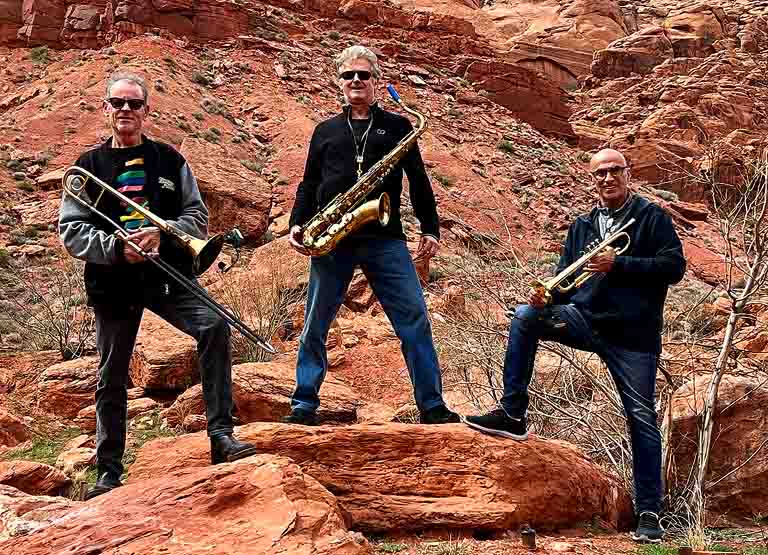
“We just did a gig in Utah (Tuacahn Center for the Arts, North East of Las Vegas). It was outdoor, amphitheater cut into the mountains. It was just gorgeous. We’ve been lucky. We don’t have bad ones (gigs) because it’s such a great songbook and we produce it well. They love it.”
“We get some pretty interesting gigs. In Rhode Island, we’ve been there before, sold out the theater twice, 1100 seats, and the next gig we did a private house party for a guy in Vale, Colorado and he had 20 or 30 people – at a house party! So we go from that to that.”
“The Bitter End in New York City, that was kind of cool because it’s such a big name club, but it’s a tiny little hole in the wall,” Gibson said.
Of course with the histories each of the Brass Transit members have, they’ve played some pretty high profile gigs on their own.
“I played the Bird’s Nest (aka the National Stadium) for two nights in Beijing with Eason Chan, sold out two nights. The whole thing I think held 115,000 or 120,000. It was open air, it was raining, but they were sitting there. I used to go to Asia, did a lot of TV work over there. I played their big idol show, routinely watched by 400 million people.”
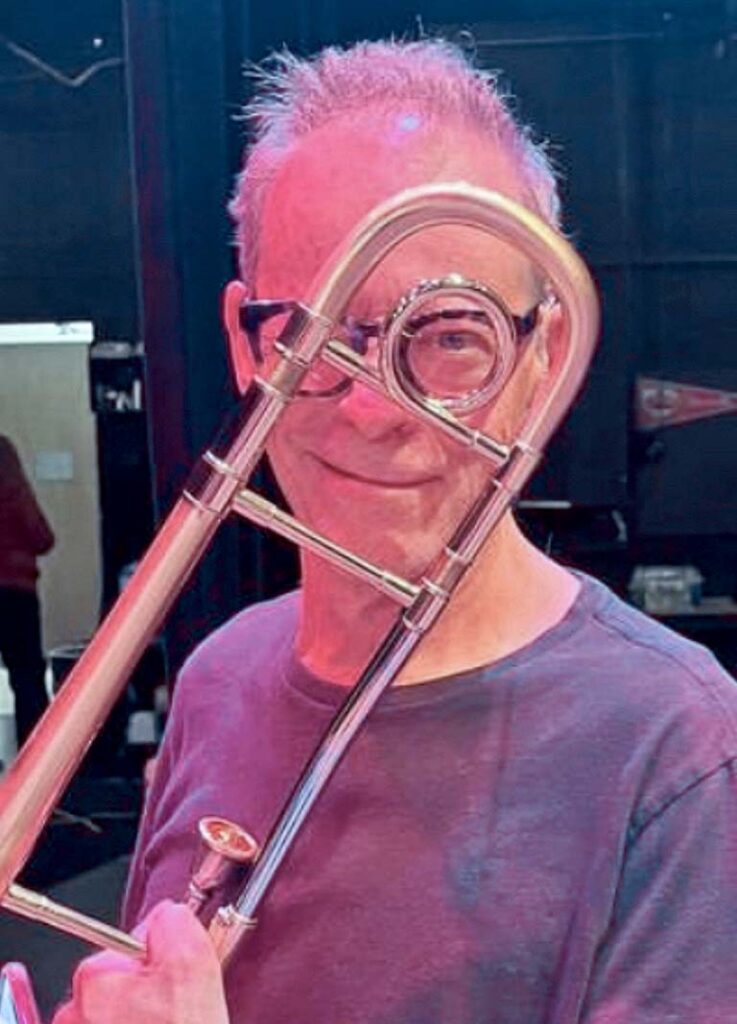
“I’ve worked the Skydome a few times, (once) with Jeff Beck. When you go in a building like that and it’s sold out it’s a pretty cool thing,”
“I’ve been around the world with what I do. It’s just good timing and you come up with the goods,” Gibson said.
Regardless if it’s 100s, 10s, a few thousand or several hundred Gibson anticipates performing every show.
“When I’m waiting in the wings, sometimes it’s just like I just can’t wait. Let’s go. Let’s get this happening, because I’m ready and I’m looking forward to it. I’ve worked with all kinds of people, but this band is great fun. It’s the most fun of any gig.”
Brass Transit played here last year and returning to play Gord’s Room in the Opera House is a gig Gibson looks forward to.
“It’s a great theater. It’s a good crew, which you don’t get all the time, Claude does a great job. It’s a beautiful old theater, a fun place to play. It makes a big difference,”
Tickets are available online right now.
(Photos by Swartz – SUNonline/Orillia and Images Supplied) Main: Brass Transit plays the Opera House June 24.

